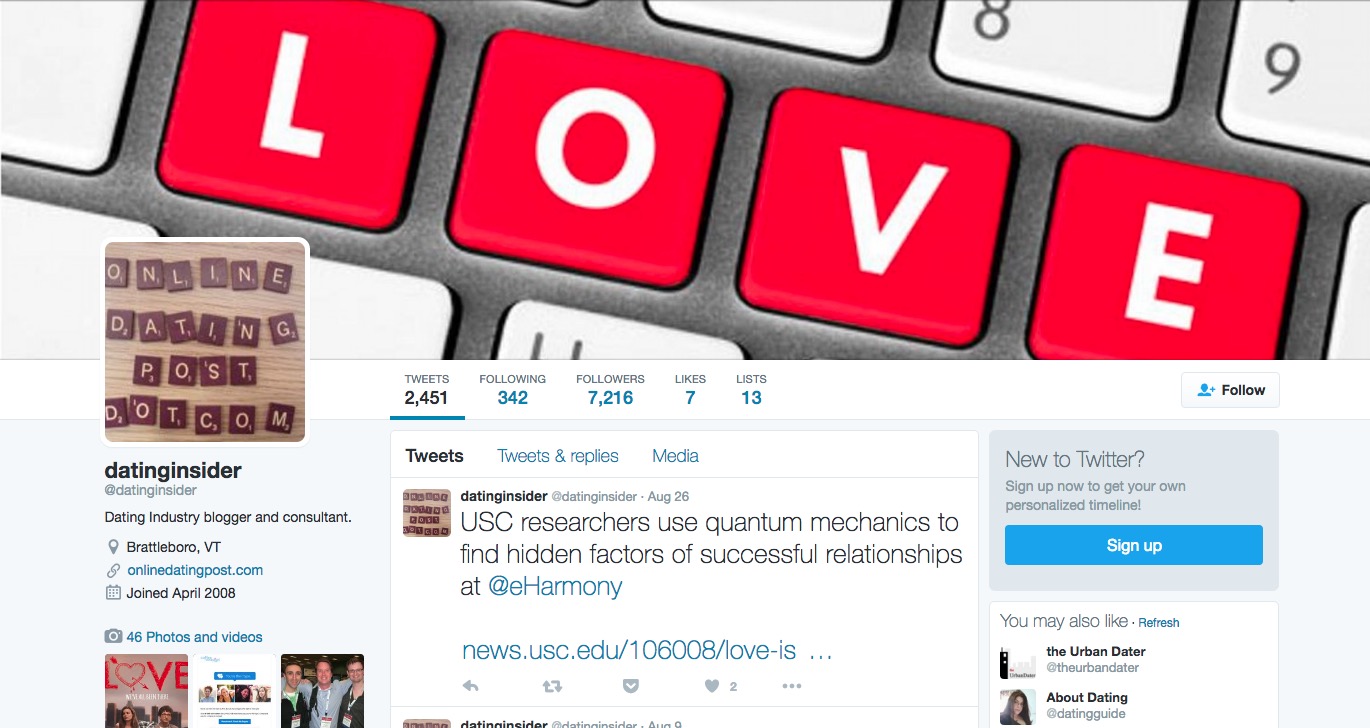 Over the weekend the BBC’s Adrian Goldberg aired an investigative piece centered on allegations that Cupid PLC had among other things made use of fake profiles and communications to entice members to sign up. Cupid LLC’s official response was that there are 100 test accounts in their systems (think Mystery Shoppers).
Over the weekend the BBC’s Adrian Goldberg aired an investigative piece centered on allegations that Cupid PLC had among other things made use of fake profiles and communications to entice members to sign up. Cupid LLC’s official response was that there are 100 test accounts in their systems (think Mystery Shoppers).
The interview starts with a man stating that he saw a number of women’s profiles from the same town stating the women were 51 and featuring measurements of 30-18-30. Another guy received a dozen of generic messages, paid to read them and found that on the whole the messages “seemed” fake. Most damning was the assertion that people are receiving messages from people they never contacted.
If Cupid LLC was creating fake profiles, they forgot to add some randomness to the profile generator. There are a number of other people interviewed with the usual suspicions- lots of contact from people, then they drop off the map, similar profiles and so on. Some of this is just typical online dating behavior.
But not once during the interview did I get the sense that Cupid PLC has engaged in systemic fraudulent behavior across the entire company.
Could there have been some funny business going on at Cupid PLC? I don’t doubt that at all. The company has 23 million active users, 500 employees in the Ukraine and 180 million chat messages per month. It’s a big company with a lot of moving parts and there are probably some people doing things they shouldn’t. Being listed on a public exchange only exacerbates the pressure to grow a business. Cupid’s stock is down and some analysts are wary, while others consider the stock a Buy.
But let’s get one thing straight, many dating sites have engaged in sketchy practices when it comes to growing their user databases. This is an industry-wide issue. Cupid LLC is just the latest to find themselves in the media’s crosshairs. Similar allegations have been made against Yahoo Personals, the Match fake profile lawsuit, Spark Networks and other sites over the years.
I’ve heard lots of stories over the years of how dating sites will do some pretty ridiculous things to achieve enough customer density to get people to stick around long enough to (re)monetize. Some choose to buy fake profiles during the launch process. I think most would agree that this is a terrible idea. Other use automated messaging of different sorts (email, IM, chat). This has been going on for a decade. The truth of the matter is that like any industry, there are always bad actors that will do anything to grow their businesses.
Cupid PLC’s Bill Dobbie was interviewed at the 31 minute mark. My ears perked up when he said in regards to online dating, “Buyer beware.” Truth, just like with anything else in life. But that doesn’t let Cupid LLC or any other dating site off the hook.
Look at Reddit, which admits to stuffing the site with fake profiles early on to get enough traction to take off and ultimately get acquired by Conde Naste.
Here’s Zynga’s CEO Mark Pinkus (via TechCrunch):
I knew that i wanted to control my destiny, so I knew I needed revenues, right, fu**ing, now. Like I needed revenues now. So I funded the company myself but I did every horrible thing in the book to, just to get revenues right away. I mean we gave our users poker chips if they downloaded this zwinky toolbar which was like, I don’t know, I downloaded it once and couldn’t get rid of it. *laughs* We did anything possible just to just get revenues so that we could grow and be a real business…So control your destiny. So that was a big lesson, controlling your business. So by the time we raised money we were profitable.
Perhaps the results of the BBC putting the spotlight on Cupid PLC will result in certain dating sites cleaning up their act when it comes to fake profiles and messages. But I wouldn’t hold my breath. Global legislation of the dating industry is a pipe dream and there is simply too much money to be made in online dating. Once you’ve sunk a ton of money into developing a site and marketing it, the dreams of riches can easily sway entrepreneurs to turn a blind eye to deceptive marketing and customer acquisition techniques.
Buyer beware, indeed.
Download the audio of the interview.

